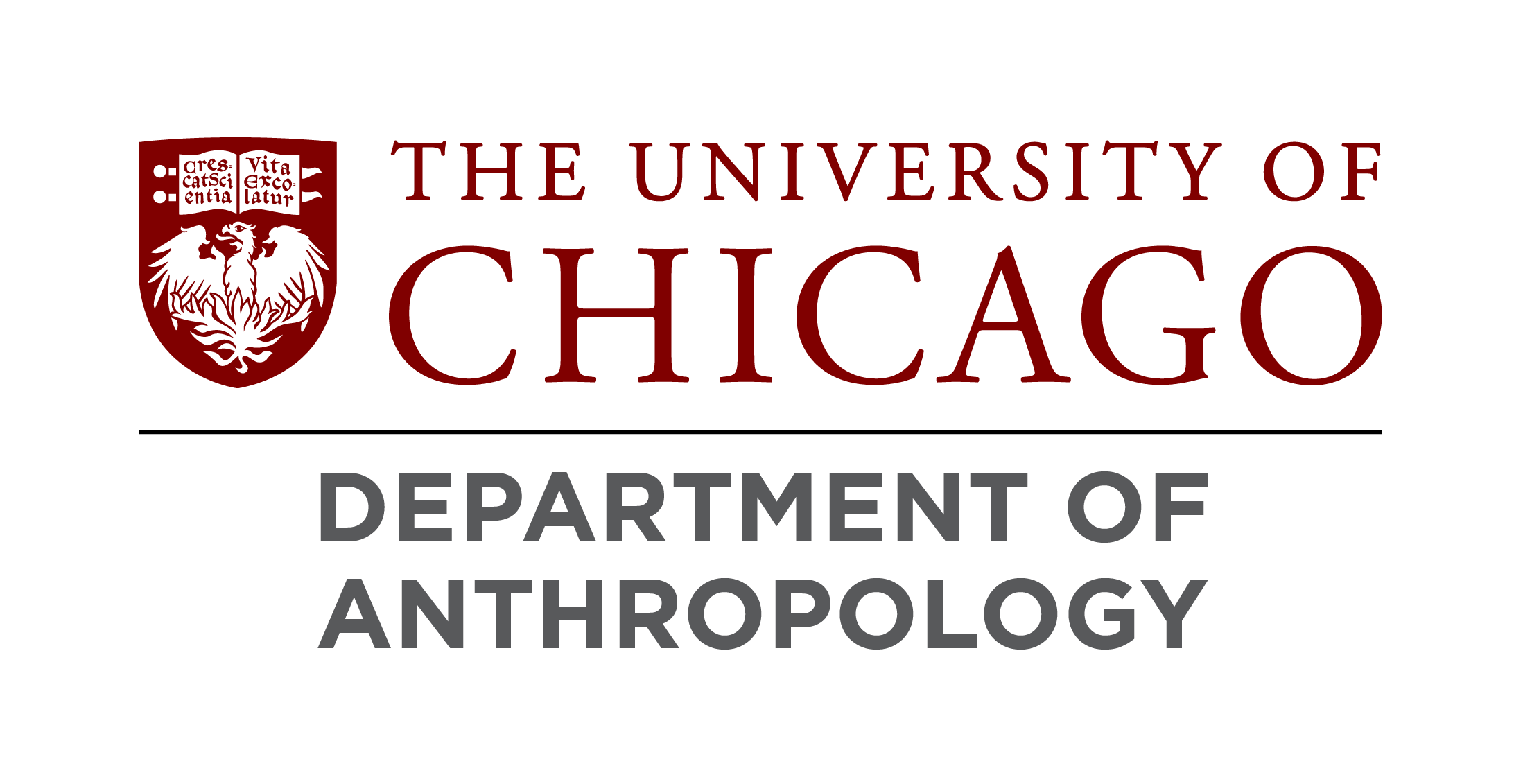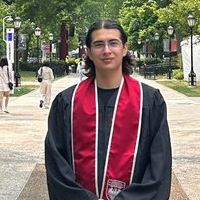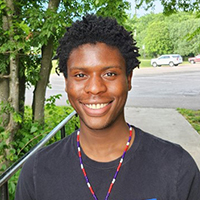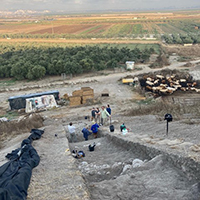Meet Our Students
What drew you to the major?
The anthropology major gave me the opportunity to critically analyze different aspects of human life (migration, housing, trauma, etc.) by appreciating the individual choices and historical conditions that give rise to certain behaviors, events, and the methods we use to study them.
Was there a specific experience in the major that had an impact on your academic journey?
I had a class, "Mobility in Society," with three people and turned out to be an incredibly intimate and productive experience.
What are you doing after graduation?
I am a Case Manager at Linn County Advocate; I was placed there after being accepted into Partners for Justice's client advocate fellowship program.
Any words of advice to current or prospective majors?
Take class notes on paper.
What drew you to the major?
I was always interested in people, different cultures, and the "why" aspect about human traditions and practices. I was especially curious about the origins of these practices. Anthropology allowed me to satiate this curiosity in several ways.
Was there a specific experience in the major that had an impact on your academic journey?
Taking classes on the Inca/Aztec States as well as the Ancient Khmer by Professor Alan Kolata really made me feel confident in my academic plan as I was able to delve deep into the histories of rich cultures. It also reinforced to me that "looking back" can help us understand the current world and even sometimes make predictions about where we are heading.
What are your plans for after graduation?
I am going to be a data science analyst at a financial services company. In the recruiting process, my anthropology background was valued because of the unique yet important perspective I bring to the team.
Any words of advice to current or potential majors?
The world still doesn't widely know and appreciate the applicability, expertise, and knowledge that comes from studying anthropology. I say... as long as humans exist, anthropology is important. I will suggest learning a hard skill such as statistical analysis in R, or other similar skills, as they are relevant to anthropology and they lead to your anthropology degree being more salient to employers.
What drew you to the major?
At first, it was my affinity for critical social theory and my desire to address real-world problems. Over time, I developed an affinity for the particularity of the ethnographic method, and the chance to bring silenced voices to the forefront of academic inquiry.
Was there a specific experience in the major that had an impact on your academic journey?
Doing ethnographic research in Paris, France, supported in part by the Lloyd A. Fallers Fund for Undergraduate Anthropological Research, has helped me understand the limitations, but also the various unexpected joys, of ethnographic fieldwork. It has helped me piece together everything I've spent countless hours reading about in Hyde Park.
What is the topic of your BA Thesis Project?
I am currently in the process of conducting thesis research on experiences of contemporary protest in Paris, France. It has made eminently clear to me how inextricable one's positionality is from the actual practice of research. It has also shown me how passionately interlocutors can take on and mold an ethnographic research project. Ultimately, it has shown me that ethnographic work must by necessity overcome any premade plans for its conception.
What are your plans for after graduation?
I plan to take some time off while applying to graduate school in the social sciences. I hope to study political ecology and urban social movements.
Any words of advice to current or potential majors?
Radically shift your context. While UChicago provides an amazing environment for intellectual inquiry, spending four years in Hyde Park can create a sort of tunnel vision. While studying abroad helped give me a needed perspective shift, others I know have found new perspectives very close to home. More than just providing personal development, a shift in context helps one really consider their positionality in their own work and develop an ethnographic eye.
What motivated you to become an Anthropology major?
At the start of my academic journey, I didn't have a specific major in mind. I dabbled in various subjects, finding something intriguing in each one. Eventually, I discovered anthropology, a major that gave me the freedom to explore diverse areas of study. Through this field, I continued to delve into a wide array of subjects, granting me the flexibility to pursue my passions.
Was there a specific experience in the major that had an impact on your academic journey?Without a doubt, my time at UChicago took a pivotal turn when I began working closely with my thesis mentor, Hannah Farrell. Through her guidance, I not only uncovered my passion for anthropology but also took on the challenge of crafting a thesis and even created my first conference poster. The University's Alemseged lab opened up a world of anthropology that I hadn't imagined was accessible to me.
In addition to absorbing knowledge from esteemed figures in the field, I was fortunate enough to have Zeray Alemseged, PhD, as my thesis advisor. His brilliance and reputation in anthropology further enhanced my academic journey. The invaluable support I received from the graduate department has been instrumental in shaping my trajectory in this field.
Did you write a BA Honors Thesis? If so, what was that experience like?
I am in the process of writing it. Currently, I am just in the researching process, so I can get back to you when the writing starts!
Any words of advice to current or potential majors?
If you are like me, and are interested in everything, explore every part of anthropology: From ethnology to bioarchaeology.
 THE UNIVERSITY OF CHICAGO
THE UNIVERSITY OF CHICAGO




